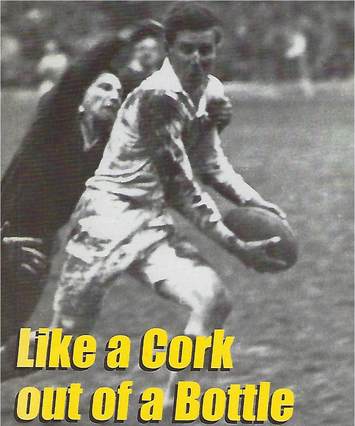Each of us has a sort of inner clock. At a certain point in life we set it and then seldom change it. Some people are only at their best in the evening and especially as midnight approaches: 'That's the way I am.'
But we can if we choose adjust the clock. Some conversations can be curtailed, some TV programmes missed. But most of all, we may have to deal with the image we have of ourselves.
Rising early to be serious about God sounds like a bit of holiness which may not be at all the image we want. So we settle for an easier road. We would rather be easy-going than be new and centred in God. The last thing we want to do is to become saints. So we settle for the second rate.
Father Alphonse Gratry, French priest and philosopher (1805-1872), wrote a book Les Sources, meaning 'The Springs'. In the first chapter he presents this extraordinary challenge:
The advice which follows is not for everyone. Only a few choice spirits, in the present state of the world, are capable of following it or will want to do so.
It is addressed to that man of 20, sane and privileged in mind and even more in heart, who had understood that at the point where his fellow students have finished their education his own begins; who, at the age when the crowd is swept along by the love of pleasure and of freedom, of the world, its honours and its riches, stops to scan the wide horizon of life for a worthier object of love.
It is to this man alone that I am speaking and to him alone.
First I say this: you must know that wisdom is only to be possessed on stringent terms. Are you courageous? Can you face silence and solitude? Are you willing to see your equals, who have chosen an easy way, advance in their career faster than you and occupy the space in the world that might have been yours? Can you sacrifice everything, without exception, to justice and truth?
Then listen to what follows:
If you have this extraordinary determination and are able to overcome innumerable obstacles, reasonable and unreasonable, which will bar your way, let me tell you who your teacher is to be.
God is to be your teacher.
St Augustine wrote a book called De Magistro in which he shows that there is only one master, a single master who is inside us. Moreover God is the universal light which illumines every man who comes into the world. Do you believe it? If so you must accept the consequences.
Say to this master! 'Master speak, I am listening.' Then you must listen. What is this inner chatter of vain thoughts, uneasy desires, passion, prejudices planted by your education, or those more formidable prejudices which are part of the age in which you live and which influence you without knowledge? Before you can reach the consecrated silence of the inner sanctuary there are important battles to be won. You need those supernatural victories of which God says: 'To him who conquers I will give authority over nations.'
We must stop being slaves to ourselves and slaves of the age in which we live. I do not say that this struggle has to be over. I do say that it has to have begun. It is in fact in the morning before the busyness and distractions of the day that we must listen to God.
Augustine says: 'This is what you must do: ask for strength and for help in finding what you are looking for, then write it down so this creation of your heart may be a source of life and strength.'
Is it not certain that God is continually speaking just as the sun is continually shining?
If you seek silence and solitude you will at times wake up to the realisation that you are no longer alone.
Do not trust your memory.... You must seize the occasion and write. Try to capture the whole panorama of the inner spectacle!
English


